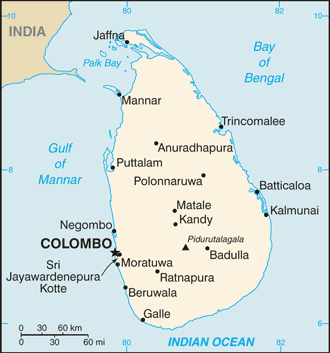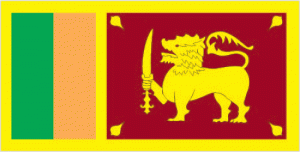Sri Lanka
 Aglow Leader: Vasanthi Jaywardene
Aglow Leader: Vasanthi Jaywardene
National Board President
Capital: Colombo
Prayer:
There is turmoil in the government of Sri Lanka as citizens are seeking solutions to the difficulties they are facing with basic daily provisions.
- Pray for the safety of the Sri Lankan people and ease their suffering.
- Lord, bring reformation in policies that releases restoration in Sri Lanka
- Lord, unite the hearts of Sri Lankan Christians as they pray for the healing of their land.
- Bless Aglow Sri Lanka as they pray and encourage the Sri Lankan people.
- Let the jewel of Sri Lanka shine brilliantly in Your Hand, oh God.
Proclaim:
- We declare that Sri Lanka rises as the “Antioch” of Asia.
Prayer for Aglow:
- Pray that Aglow people will stay strong in the face of national crisis. Pray they will bring hope and light into the darkest of situations. Pray they grow in maturity as they face the darkest of situations.
- Pray Aglow women will have spiritual influence and arise to be a blessing to the suffering and afflicted.
- Pray for the new ministry in the upcountry areas with women from a low-income group. Pray Aglow will be a light of Christ to shine into their hearts bringing change and transformation. Pray for strong Godly marriages. Pray that occultic practices, witchcraft and satanic covenants are broken.
Interesting Facts About Sri Lanka
 Background: The first Sinhalese arrived in Sri Lanka late in the 6th century B.C., probably from northern India. Buddhism was introduced circa 250 B.C., and the first kingdoms developed at the cities of Anuradhapura (from circa 200 B.C. to circa A.D. 1000) and Polonnaruwa (from about 1070 to 1200). In the 14th century, a south Indian dynasty established a Tamil kingdom in northern Sri Lanka. The Portuguese controlled the coastal areas of the island in the 16th century followed by the Dutch in the 17th century. The island was ceded to the British in 1796, became a crown colony in 1802, and was formally united under British rule by 1815. As Ceylon, it became independent in 1948; its name was changed to Sri Lanka in 1972. Prevailing tensions between the Sinhalese majority and Tamil separatists erupted into war in July 1983. Fighting between the government and Liberation Tigers of Tamil Eelam (LTTE) continued for over a quarter century. Although Norway brokered peace negotiations that led to a ceasefire in 2002, the fighting slowly resumed and was again in full force by 2006. The government defeated the LTTE in May 2009.
Background: The first Sinhalese arrived in Sri Lanka late in the 6th century B.C., probably from northern India. Buddhism was introduced circa 250 B.C., and the first kingdoms developed at the cities of Anuradhapura (from circa 200 B.C. to circa A.D. 1000) and Polonnaruwa (from about 1070 to 1200). In the 14th century, a south Indian dynasty established a Tamil kingdom in northern Sri Lanka. The Portuguese controlled the coastal areas of the island in the 16th century followed by the Dutch in the 17th century. The island was ceded to the British in 1796, became a crown colony in 1802, and was formally united under British rule by 1815. As Ceylon, it became independent in 1948; its name was changed to Sri Lanka in 1972. Prevailing tensions between the Sinhalese majority and Tamil separatists erupted into war in July 1983. Fighting between the government and Liberation Tigers of Tamil Eelam (LTTE) continued for over a quarter century. Although Norway brokered peace negotiations that led to a ceasefire in 2002, the fighting slowly resumed and was again in full force by 2006. The government defeated the LTTE in May 2009.
During the post-conflict years under President Mahinda RAJAPAKSA, the government initiated infrastructure development projects, many of which were financed by loans from China. His regime faced significant allegations of human rights violations and a shrinking democratic space for civil society. In 2015, a new coalition government headed by President Maithripala SIRISENA of the Sri Lanka Freedom Party and Prime Minister Ranil WICKREMESINGHE of the United National Party came to power with pledges to advance economic, governance, anti-corruption, reconciliation, justice, and accountability reforms. However, implementation of these reforms has been uneven. In October 2018, President SIRISENA attempted to oust Prime Minister WICKREMESINGHE, swearing in former President RAJAPAKSA as the new prime minister and issuing an order to dissolve the parliament and hold elections. This sparked a seven-week constitutional crisis that ended when the Supreme Court ruled SIRISENA’s actions unconstitutional, RAJAPAKSA resigned, and WICKREMESINGHE was reinstated. In November 2019, Gotabaya RAJAPAKSA won the presidential election and appointed his brother, Mahinda, prime minister.
Government Type: presidential republic
Population: 23,044,123 (July 2021 est.)
Ethnic Groups: Sinhalese 74.9%, Sri Lankan Tamil 11.2%, Sri Lankan Moors 9.2%, Indian Tamil 4.2%, other 0.5% (2012 est.)
Languages: Sinhala (official and national language) 87%, Tamil (official and national language) 28.5%, English 23.8% (2012 est.)
Religions: Buddhist (official) 70.2%, Hindu 12.6%, Muslim 9.7%, Roman Catholic 6.1%, other Christian 1.3%, other 0.05% (2012 est.)
Interesting Facts information from the cia.gov website. Read more about Sri Lanka
